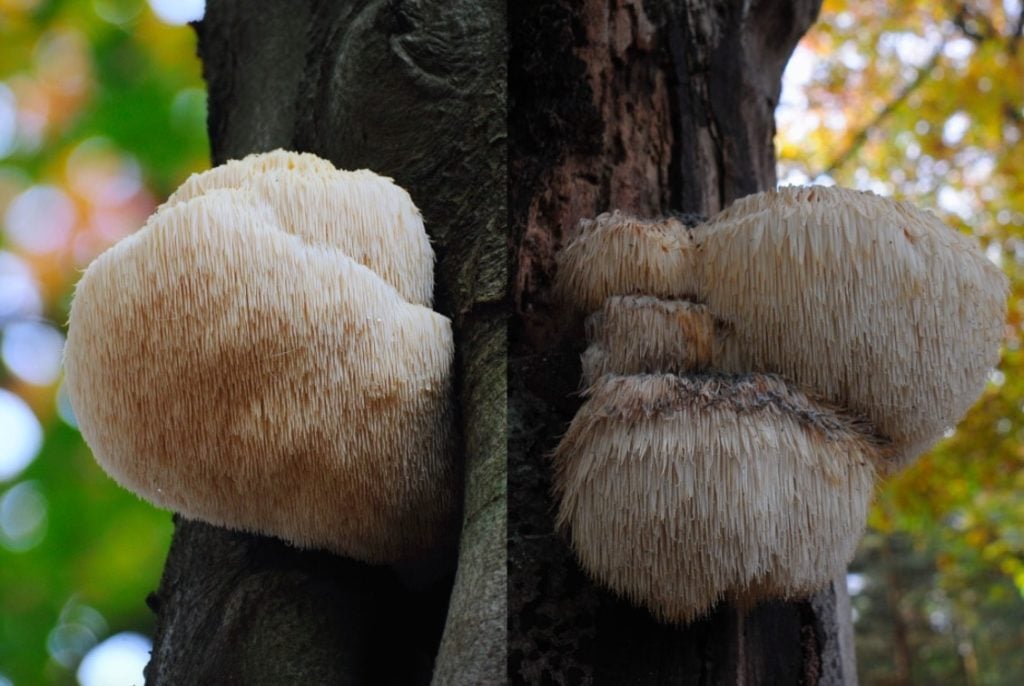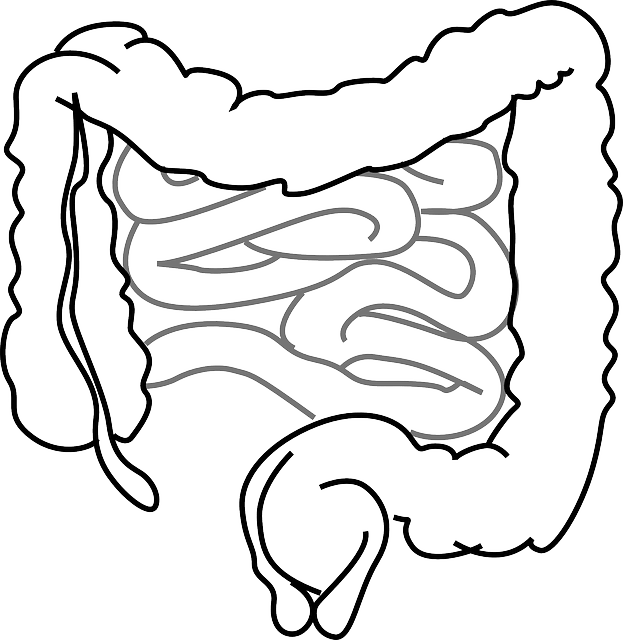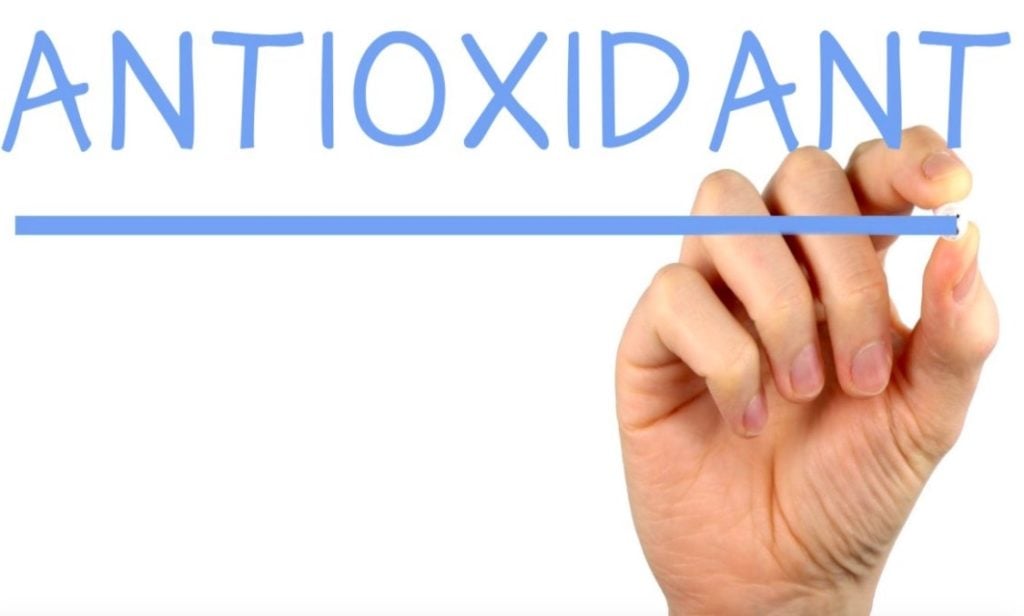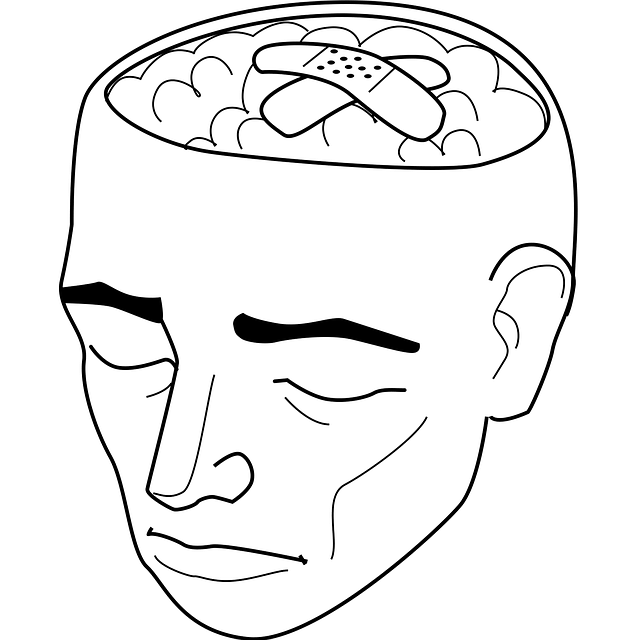Introduction
Lion’s Mane is a culinary and medicinal mushroom that is growing in popularity as a functional food. It is claimed to have anticancer, immuno-modulating, hypolipidemic, antioxidant, antimicrobial, antihypertensive, antidiabetic, and wound healing properties.
However, its real claim to fame is as a neuroprotective agent. I have plenty of patients (and friends) who are not just planning their retirement fund but are also busy planning for “successful ageing.” This is potentially a huge market, considering the fact that it is predicted that there will be 42 million cases of neurodegenerative diseases (like Alzheimer’s) by the year 2020.
Improving neuro-health is a major health concern given the fact that there will be 90 million people over the age of 65 by 2050 – the “silver tsunami.”
Can Lion’s Mane mushroom help you and me avoid these neurodegenerative diseases and become one of the so-called “super agers?”
What Is Lion’s Mane Mushroom?
Mushrooms sit between plants and animals in the tree of life. Mushrooms have been used as both food and medicine by humans for thousands of years. There are 14,000 species of mushrooms (we have also covered another one, the Chaga Mushroom), which includes approximately 2,000 edible mushrooms and 200 mushrooms with potential as functional foods.
Hericium erinaceus is one of these 200 mushrooms. It is also known as Yamabushitake, the hedgehog mushroom, and Lion’s Mane mushroom. It has a long history of use in traditional Chinese medicine.
Mushrooms secrete extracellular enzymes which allow them to assimilate nutrients by the absorption of the simple molecules that are created following the enzymatic degradation process. Mushrooms are naturally rich in proteins, fiber, carbohydrates, vitamins, and minerals and are low in calories and fats, especially cholesterol.
Lion’s Mane mushroom contains over 70 actual and potential bioactive compounds, including hericernones, erincines, hericerins, resorcinols, steroids, and mono- and diterpenes.
The polysaccharide content of Lion’s Mane mushroom is predominantly glucose (68%), followed by arabinose (11%) and xylose (7.8%).
Analytical data is only available on one Lion’s Mane product on the US Food Composition Database website (1). This analysis shows that it contains 167 kcal and 33.3 g of carbohydrate (per 100 g of Lion’s Mane mushroom).
There are over 7,000 Lion’s Mane-related products available for sale on Amazon, ranging in price from $0.28/oz to $15/oz. There are even some DIY grow-it-yourself kits.

Is There Any Research?
Eleven papers have been published on “Lion’s Mane.” None of these 11 papers have anything to do with mushrooms but instead, discuss the role of an actual “lion’s mane” on aggression and sexuality. A whole other story.
There are 147 papers for the search term Hericium erinaceus. These include 3 clinical trials. Details on only 2 of these 3 clinical trials are available online. And then there were two.
To put this into context, there are over 60,000 papers on onions (another popular functional food) which include almost 100 clinical trials.
It’s not just that there are limited studies on Lion’s Mane mushroom. A comprehensive review of Lion’s Mane mushroom published in 2015 described the information on Lion’s Mane mushroom as being “widely scattered” (2).
So let’s organize and analyze what data we can find on the subject to see if there is reasonable scientific validation for these ethnomycological claims (fancy word for historical and social uses of mushrooms).
Does Lion’s Mane Mushroom Enhance Brain Function? Memory?

In vitro studies showed that Lion’s Mane mushrooms contain neurotrophic factors (hericenones and erinacines) which can induce nerve growth factors essential for the maintenance of optimal forebrain function (3). In summary, the full study showed that Lion’s Mane mushroom had neurotrophic (meaning growth of nerve cell tissue) but no neuroprotective effects.
A double-blind, placebo-controlled trial was carried out in thirty (50-to-80-year-old) Japanese patients with mild cognitive impairment. The subjects took 100 mg of Lion’s Mane mushroom three times daily for 16 weeks. There was an improvement in the cognitive function scale of the patients treated with Lion’s Mane as compared to a matched placebo group.
The beneficial effects of the Lion’s Mane mushroom were limited to the study period and did not persist beyond 4 weeks after the end of the study (4).
Bottom Line
There is one small short-term clinical study showing that Lion’s Mane mushroom can help with cognitive function in patients with mild dementia. Further studies are needed to understand this more fully and to see if Lion’s Mane mushrooms can help other patient populations of interest, e.g. post-concussion, people who are getting older but with normal cognition and in severe cognitive impairment.
Does It Have Anticancer Properties?
There are 24 publications relating to cancer and Lion’s Mane mushrooms. Unfortunately, none of these involve human subjects.
One study showed that an extract of Lion’s Mane inhibited lung metastases (secondaries) in mice with colon cancer. (5).
Other studies in cancer cell lines confirmed the potential role of Lion’s Mane mushrooms as an anticancer agent, either alone or in combination with chemotherapeutic agents (6).
There is also a study showing that Lion’s Mane mushrooms sensitize cancer cells to the chemotherapeutic agent doxorubicin (7). This suggests a possible future role for Lion’s Mane mushrooms in drug-resistant liver cancer.
Bottom Line
There are no human clinical studies looking at Lion’s Mane mushrooms in cancer.
Does It Support Heart Health?

The closest studies relating to Lion’s Mane mushrooms and cardiac health come from researchers in Japan (8). They isolated hericenone B from the Lion’s Mane mushrooms and found that this compound inhibited platelet aggregation in a rabbit model. It is known that platelet aggregation increases the risk of thrombosis, which is part of the pathogenesis of myocardial infarction. This raises the possibility that Lion’s Mane may support heart health (all very theoretical).
A second study from the same university found that Lion’s Mane mushrooms reduced plasma lipid levels in mice that were fed a high-fat diet (9).
Taken together, these two studies raise the possibility that Lion’s Mane mushrooms play a role in preventing heart disease. This is certainly possible but far from proven at this time. It is a long hop from bunny rabbits and “foie gras” mice to human health.
Bottom Line
There is no science to support claims that Lion’s Mane mushrooms support heart health.
Does It Improve Digestive System Health?

The most relevant studies looking at Lion’s Mane mushrooms in digestive health can be summarized as follows.
A study in 42 rats compared pre-treatment with distilled water versus anti-ulcer medication versus Lion’s Mane mushroom on the effects of alcohol-induced gastric mucosa (10). The paper has some grim pictures of the little gastric mucosa of the dead rats (definitely x-rated material). The study showed that pre-treatment with either anti-ulcer medication or H. erinaceus offered significant protection against alcohol-induced gastritis.
Another study identified a 3100 Dalton polysaccharide called EP-1 in Lion’s Mane mushroom and found that it inhibits the growth of human chronic gastritis cells in a laboratory-based model (11).
Bottom Line
There are no human studies looking at Lion’s Mane mushrooms and digestive health.
Does It Reduce Inflammation?
There are 7 studies looking at Lion’s Mane mushroom in inflammation, but no clinical studies.
Extract from Lion’s Mane mushrooms exhibited anti-inflammatory activity thought to be due to inhibition of nitric oxide generation, suggesting a possible role for Lion’s Mane mushroom as either a preventive or therapeutic anti-inflammatory agent (12).
Another study found that Lion’s Mane mushroom reduced inflammation in 20 mice with chemically induced inflammatory bowel disease (13)
All very interesting, but:
Bottom Line
We have no human clinical precedent for using Lion’s Mane mushrooms in humans for GI health.
Does It Have Antioxidant Properties?

Again, no human clinical trials here.
An in vitro study looked at polysaccharide isolated from 8 mushrooms (including Lion’s Mane mushrooms). All mushrooms had significant in vitro antioxidant activity (14). The Lion’s Mane mushroom had the strongest antioxidant effect of all the mushrooms on the HeLA cell culture but not in MCF-7 cells. This suggests that Lion’s Mane may have a selective role as an antioxidant.
Another laboratory-based study showed that Lion’s Mane mushrooms significantly decrease lipid peroxidation levels and increase antioxidant enzymes activities in experimental animals.
Finally, the antioxidant activity of water-soluble oligosaccharide extracts from the fruiting body of Lion’s Mane mushroom was evaluated using three biochemical methods (DPPH, ABTS, and hydroxyl scavenging activity) (15). The study showed that Lion’s Mane mushroom exhibited antioxidant activity on all three tests.
Bottom Line
We have no clinical studies to guide us on the role of Lion’s Mane mushrooms as antioxidants. In vitro studies suggest antioxidant activity, but further studies are needed to understand the specific antioxidant mechanism of action on this mushroom.
Does It Improve the Immune System?
A series of studies in mice showed the Lion’s Mane mushroom extract improved cell-mediated and antibody-mediated immune function and postulated that these immunomodulatory effects were due to the regulation of intestinal immune activity (16).
A study showed that Lion’s Mane mushrooms had no direct antibacterial effect on Salmonella bacteria. However, mice infected with Salmonella lived longer when treated with Lion’s Mane mushroom extract. This suggested that the Lion’s Mane extract was working by stimulating the immune system of the mice ( 17).
Bottom Line
In the absence of human data, it is impossible to validate Lion’s Mane as an immunomodulator.
Does It Improve Mental Health?

Japanese investigators looked at the effect of Lion’s Mane mushrooms on menopause, depression, and sleep quality (18). Thirty females with “a variety of indefinite complaints but no specific diseases or diagnosis” were enrolled in this study. They were randomly assigned to either Lion’s Mane cookies or placebo cookies for 4 weeks.
Each treatment cookie contained 0.5 g of the powdered fruiting part of the mushroom. The placebo cookies contained no Lion’s Mane mushrooms. Most blogs out there report that the study showed significant improvements in depression and anxiety with the Lion’s Mane mushroom.
I totally disagree. This is one of the only two human clinical studies on Lion’s Mane mushrooms and, as such, merits a deep dive.
(I am a self-confessed academic snob. In my defence, my PhD supervisor would make me count all the dots on a scatter graph to make sure that any source data we used/quoted was accurate.)
According to Mark Twain, “There are three kinds of lies: lies, damned lies, and statistics.” The problem with this study is the misinterpretation of the statistical analysis.
The study compared the “before and after effect” of Lion’s Mane mushroom and also compared Lion’s Mane mushroom to a placebo.
The statistics show that there was a non-significant improvement in menopause symptoms in the Lion’s Mane treatment group, and there was no difference between the treatment and placebo group. Put together, this means that Lion’s Mane had no effect on menopause symptoms.
There was a statistically significant difference in the depression score in the intervention arm at the end of the study but no difference between the treatment and placebo arm, which suggests a placebo effect.
There was no difference noted for sleep quality.
Looking at the “non-specific” category, there was a statistically significant improvement in the intervention arm. Researchers then looked in more detail and found that this improvement did not relate to symptoms of anxiety. The only statistically significant difference was noted for “palpitations” and “insentive.”
The paper was written by researchers who were not native English speakers. I do not know what the authors mean by “insentive.” Either way, as this is a sub-analysis of an analysis in just 30 women over 4 weeks looking at “non-specific” symptoms, it is hard to take this seriously.
Overall, the authors conclude that Lion’s Mane has the “possibility” to reduce depression and anxiety. However, the paper was titled “Reduction of depression and anxiety by 4 weeks Hericium erranceus intake.” Herein lies the problem. Far too many bloggers take research paper titles and simply “re-tweet” them. Health blogs are not Twitter.
Bottom Line
The one clinical study done on Lion’s Mane mushroom in mental health failed to show any benefit across a range of parameters.
Is Lion’s Mane Mushroom Safe?
Oral administration of doses of up to 1,000 mg/kg daily for 90 days of H. erinaceus was deemed to be safe based on autopsy studies of sacrificed rats (19).
A second study in Sprague-Dawley rats showed that doses of up to 3,000 mg/kg/day were safe based on autopsy samples again (20).
Of course, if the poor rats had other side effects that did not result in histopathological changes, then they could hardly report them.
It’s also worth mentioning the importance of finding Lion’s Mane mushrooms that are free of pesticides. Put it like this. There’s too little data on Lion’s Mane mushrooms to justify the risk of ingestion of pesticides. The risk-benefit analysis for Lion’s Mane mushroom would clearly be against them if there were any risk of pesticide exposure.
Conclusion
We only have research points on 30 patients for 20 weeks and another 30 patients for 4 weeks to populate our entire knowledge base on Lion’s Mane mushrooms. I could hardly be expected to trust my financial plan for retirement to inconclusive short-term results from a total of 60 investors. Equally, I can’t be expected to trust my “successful brain ageing” to Lion’s Mane.
Available research studies on Lion’s Mane are not just “widely scattered.” They are also hopelessly inadequate at this time.
Nowadays there are four types of lies: lies, damned lies, statistics, and re-tweeting health bloggers.

Leave a Reply